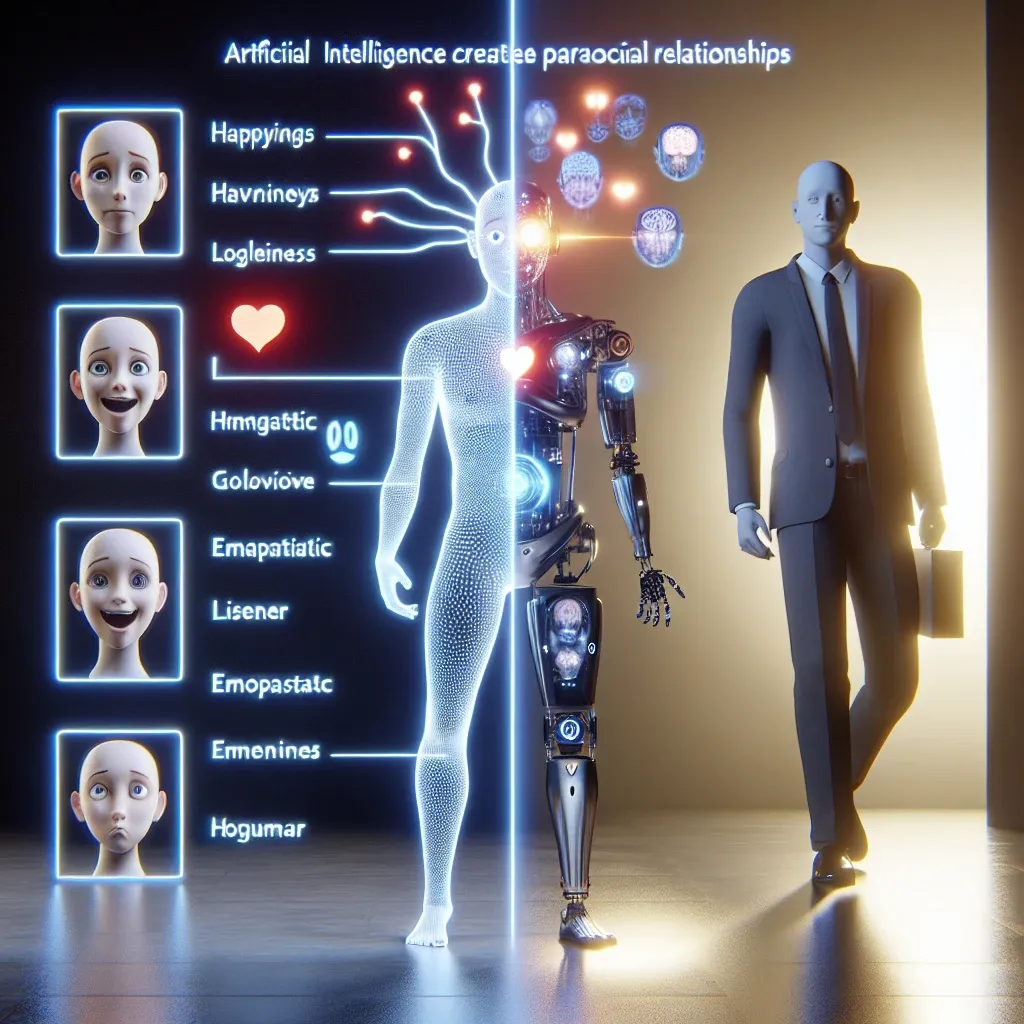Introduction
In an era dominated by technology, the concept of friendship is evolving. Artificial Intelligence (AI) has emerged as a significant player in shaping human interactions and relationships. This article delves into how AI friend roles create parasocial relationships, fostering emotional connections that mimic traditional friendships.
Understanding Parasocial Relationships
Parasocial relationships are one-sided connections that individuals form with media figures or characters. These relationships can be deeply emotional, despite the absence of reciprocal interaction. AI friends, such as virtual companions, chatbots, or digital avatars, can evoke similar feelings, leading to complex emotional dynamics.
The Origins of Parasocial Relationships
Originally identified in the 1950s by sociologists, parasocial relationships gained traction with the rise of television and celebrity culture. Viewers often felt a sense of connection with their favorite characters or hosts, leading to a feeling of companionship despite the lack of real interaction. As technology has advanced, these relationships have expanded into the digital realm, with AI friends taking center stage.
AI Friends: A New Age of Companionship
AI-driven friends serve various roles in users’ lives, from providing emotional support to enhancing social interactions. The ability of these AI entities to engage in conversations, remember past interactions, and even adapt to users’ preferences contributes to the depth of the parasocial relationship.
How AI Friends Foster Emotional Connections
- Personalization: AI friends can learn from their interactions with users, tailoring responses to create a more relatable experience.
- Availability: Unlike human friends, AI companions are available 24/7, providing support whenever needed.
- Empathy Simulation: Advances in natural language processing allow AI to simulate empathy, making conversations feel more genuine.
The Role of Technology in Enhancing Connections
Technological advancements, such as machine learning and deep learning, have enabled AI friends to evolve beyond simple chatbots. These technologies allow for improved communication, making interactions more fluid and natural. For example, AI platforms like Replika offer users a customizable friend that learns and grows with them, enhancing the feeling of interpersonal connection.
The Psychological Impact of AI Friendships
The psychological implications of forming parasocial relationships with AI friends are vast. Users often report feelings of companionship, reducing loneliness and social anxiety. These relationships can serve as a safe space for expressing thoughts and emotions without the fear of judgment.
Pros and Cons of AI Companions
- Pros:
- Reduced feelings of loneliness and isolation
- Safe environment for emotional expression
- Constant availability for support
- Cons:
- Potential to replace human interactions
- Dependence on technology for emotional well-being
- Risk of unrealistic relationship expectations
Real-World Examples of AI Friend Roles
Several AI companions have gained popularity, showcasing the growing acceptance of virtual friendships. For instance, Woebot is an AI chatbot designed to provide mental health support. It engages users in therapeutic conversations, offering a sense of connection in times of need. Similarly, AI-based gaming characters allow players to form bonds with virtual entities, enhancing the gaming experience.
The Cultural Relevance of AI Friends
As society becomes increasingly digitized, the notion of companionship is shifting. Cultural phenomena, such as the rise of virtual influencers and AI-generated characters, showcase how individuals are beginning to accept AI as part of their social circles. This shift reflects a broader acceptance of non-traditional relationships in contemporary culture.
Future Predictions: The Evolution of AI Friendships
Looking ahead, the role of AI friends is expected to expand significantly. With continuous advancements in technology, these companions may become even more sophisticated, blurring the lines between human and artificial interactions. Future AI friends might possess enhanced emotional intelligence, allowing for more profound connections.
Ethical Considerations
As AI friendships become more prevalent, ethical questions arise regarding emotional manipulation and dependency. It’s crucial to consider the implications of forming connections with AI, particularly regarding emotional health and social dynamics.
Conclusion
In conclusion, AI friend roles are shaping a new paradigm of companionship, fostering parasocial relationships that mirror traditional friendships. While the benefits of emotional support and companionship are significant, the potential drawbacks warrant careful consideration. As society navigates this evolving landscape, understanding the impact of AI on human relationships will be vital.

